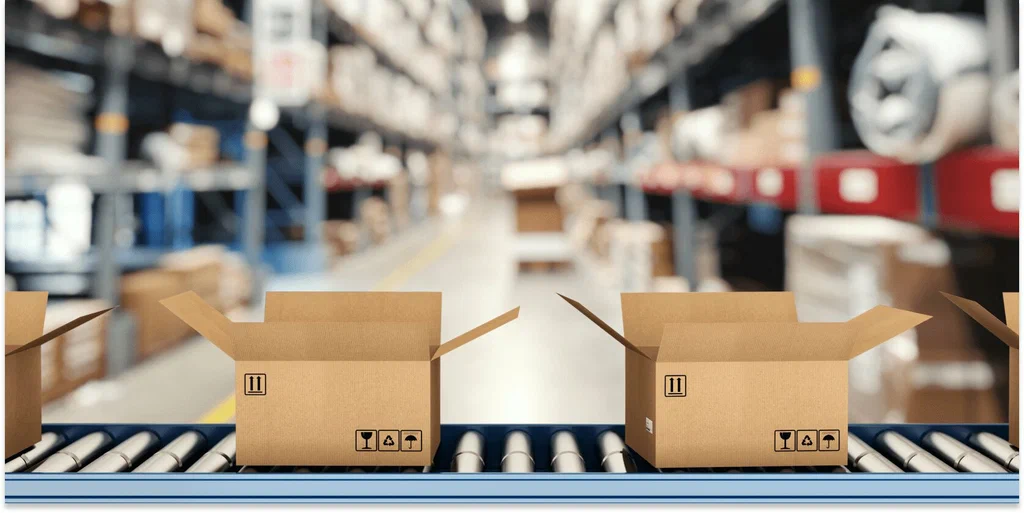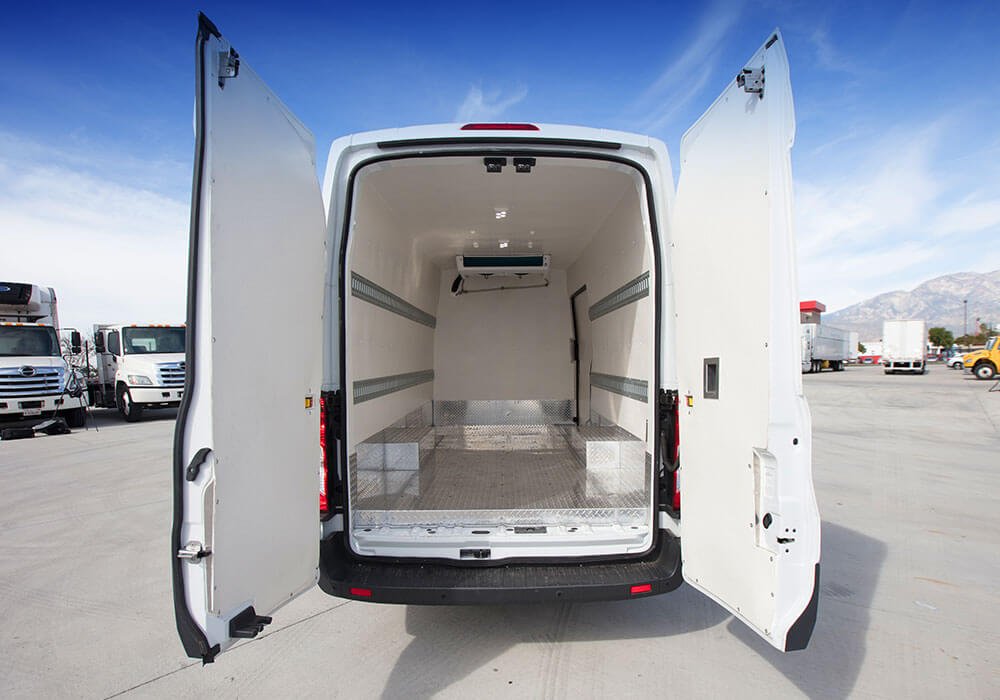In a world throbbing with medical progress and innovation, medicines are the cornerstone of human health care and disease treatment, but did you know that maintaining the effectiveness and safety of medicines requires more than just a good prescription? Properly storing human medicines at appropriate temperatures is vital in a way that cannot be ignored. When a medicine is exposed to inappropriate thermal conditions, it can deteriorate and lose its efficacy, thus wasting money and medicine and endangering human health.

Therefore, in this article, we will explore the world and methods of storing human medicines inside our warehouses in the 3rd partner, and we will discover together the basic steps and modern technology that help us maintain the effectiveness of medicines to provide the best quality of our service in this field.
Define storage temperatures
Storage temperatures are the recommended temperature range for storing human medicines properly. The recommended temperatures depend on the properties of the medicines and their chemical composition. Specific guidance is usually provided by manufacturers or concerned health authorities such as the Saudi Food and Drug Authority regarding temperatures. Proper storage for each type of medication.
For example, some medicines such as tablets and capsules are stored at normal room temperatures (between 20-25°C) while others require special requirements such as refrigeration (2-8°C) or freezing (-20°C). percentage or lower).
It is important to follow the recommended storage instructions to maintain the effectiveness and safety of medicines. These instructions may also include directions for protection from moisture and light, as they also greatly affect the effectiveness of medicines.
Effect of temperature cycling on medicines
Temperatures greatly affect the effectiveness and stability of medicines. High temperatures can cause the decomposition of active ingredients in medicines, which reduces their effectiveness. For example, storing some heat-sensitive medicines, such as insulin, antibiotics, and vaccines, at high temperatures for a long time can cause them to lose their effectiveness. Significantly.
On the other hand, low temperature can lead to changes in the composition of medicines, such as freezing liquids, as this change can affect the speed of absorption of medicines in the body and thus affect their effectiveness, and some liquid and solution medicines may become unusable if they are subjected to this type of thermal freezing. .
Therefore, we pay great attention to storing human medicines at appropriate temperatures, follow the manufacturer’s instructions and avoid exposing human medicines to high or low temperatures by maintaining appropriate storage conditions, in order to ensure the sustainability of drug efficacy and protect public health.
Practical steps and directions for storing human medicines

There are a number of practical steps and directions followed by the team specialized in storing human medicines inside our warehouses regarding temperatures and methods of storing medicines suitable for each type. These steps are:
Check recommended temperatures
The team is working to verify the recommended temperatures for each type of medicine before starting the storage process, through the following:
- Reviewing the information on the medicine package: There is usually storage instructions on the medicine package. The team checks this information to find out the recommended temperatures for storing the medicine.
- Review information from the manufacturer: Check the drug manufacturer’s website or contact them for up-to-date information on recommended drug storage temperatures.
- Follow the instructions of the competent authorities: We follow the instructions of health organizations recognized locally and internationally to obtain information about the recommended directions for storing medicines of various types, in order to provide a medical warehouse licensed by the Food and Drug Authority for all customers in the Kingdom.
Keep away from sources of heat and moisture
Storing medicines in a place away from sources of heat and moisture is necessary to maintain the quality and effectiveness of medicines. Here are some guidelines that we follow in this regard:
Avoid direct exposure to sunlight: We are keen to store human medicines in a place away from direct sunlight, because direct heat from the sun can lead to a rise in the temperature of the medicines and thus affect their effectiveness.
- Avoiding heat sources: We avoid storing medicines near heat sources such as heating devices and heaters, because they cause the place to get too hot and thus the medicines will be negatively affected.
- Avoid moisture: We store human medicines inside our warehouses in a dry place away from excessive humidity, because moisture causes damage to medicines and changes in their chemical composition.
- Staying away from electrical appliances: We avoid placing medicines near electrical appliances that generate heat such as large refrigerators or microwave ovens, because these devices produce excessive heat and affect the condition of medicines.
Use of appropriate refrigerators and freezers
In any of our medical warehouses, we use refrigerators and freezers specially designed to store medicines because they are an important step to ensure the safety of medicines that require a low temperature, and this is done by:
- Choosing the right refrigerator: We always make sure that our choices are specially designed and manufactured to store human medicines and meet the necessary standards through the ability to fully control the temperature and humidity inside.
- Setting Correct Temperatures: We make sure that the temperature in the refrigerator is set according to manufacturer directions and manufacturer recommendations by checking the indicators and devices in the refrigerator to ensure that the temperature is consistently correct.
- Follow the instructions: The work team is interested in reading and following the instructions attached to the refrigerator carefully, because they contain specific instructions regarding storing medicines and recommended temperatures.
- Avoid extreme changes in temperature: Our warehouse staff avoid opening the refrigerator frequently to avoid exposing it to sharp fluctuations in the outside temperature, as these changes can affect the condition and efficacy of medicines.
- Periodic audit: We periodically check the temperature in refrigerators to ensure their safety, and in some cases we use an internal thermometer or temperature recording technology to verify proper operation.
- Separation of medicines: We work on dividing medicines according to storage recommendations, and because there are some medicines that need to be stored at certain temperatures or separated from some other medicines.
Store medicines in airtight containers
We care about storing medicines in airtight containers to maintain the quality and effectiveness of the medicine, through the following steps:
- Airtight Containers: We use high quality airtight containers to store medicines, these containers allow air, moisture and light to be prevented, which protects the medicine from chemical spoilage and other harmful effects.
- Clear information : We make sure that there is clear and comprehensive information about the drug on the packaging, and this information includes the name of the drug, chemical composition, dosage, instructions for use, and any special warnings or recommendations for storage.
- Expiry date: We always check the expiry date of the medicine before storing it, and we constantly check the dates to avoid using unsafe medicines.
- Storing medicines in an organized manner: The team arranges the medicines in the containers in an orderly manner according to the type and use of the medicine.
- Proper Disposal: When a medication has expired or become unusable, we dispose of it properly as per local directives by the FDA, to preserve the environment and the safety of others.
The best technological tools used in human drug storage warehouses
A range of technological tools are used in human drug storage warehouses to ensure that medicines are properly and safely stored and preserved. Some of the best technological tools used are:
Refrigerators and freezers to control the temperature
Refrigerators and freezers for temperature control are one of the best technological tools used in any medical warehouse in Riyadh because they provide many advantages in storing medicines such as:
- Precise temperature control.
- Provide a wide heat field.
- Maintain proper humidity.
- It contains a system of automatic alerts and notifications to send alerts in case the temperature rises or falls below the specified limit.
Temperature and humidity control systems
Temperature and humidity monitoring systems are important technological tools in human drug storage warehouses. These systems provide accurate and continuous monitoring of temperature and humidity in the warehouse, allow control of the internal environment and ensure compliance with specified requirements. Features and functions of temperature and humidity monitoring systems include:
- Continuously measure and monitor temperature and humidity in the warehouse through accurate and advanced sensors that provide accurate and reliable readings.
- Provides a visual interface that displays current and historical readings and specified minimum/maximum alerts.
- Send alerts and notifications in case the specified temperature or humidity limits are exceeded.
- Store data and records securely, orderly, and accessible for analysis, review, and documentation.
Medication tracking systems
Drug tracking systems are technological tools used to track and record the movement of medicines from the time they enter and store them until the moment they leave the warehouse. These systems provide accurate and comprehensive information about medicines, which helps ensure their safety and reduce tracking errors and improper handling. The components of drug tracking systems include the following :
- Barcodes or special symbols to distinguish and track medicines at all stages.
- Central databases store and update traceability information for medicines.
- Reading devices and scanners to accurately determine the location and movement of medicines within the warehouse.
- Analytics and statistics tools for recorded data.
transmission and distribution system
The transportation and distribution system is an essential part of the drug storage process, as it is used to transport medicines from warehouses to their intended destinations in a safe and efficient manner. This system includes many elements and practices that contribute to ensuring the safety and quality of medicines during the transportation and distribution process, among the tools used in this order are:
- Transportation vehicles equipped with temperature and humidity control systems for the transportation of medicines.
- Sealed containers and appropriate packing materials to protect medicines from bumps and damage during transportation.
- Temperature and humidity control systems to ensure that medicines are kept at the prescribed and recommended conditions during the transit period.
- Determine the best times for shipping and delivery to ensure that medicines arrive on time and in good condition.
- Training workers on the correct transportation and distribution system to ensure compliance with medicines and not to damage them.
Important tips for choosing the best human drug storage warehouse
There are an infinite number of medical warehouses in Riyadh and the Kingdom as a whole, but how do you choose a medical warehouse licensed by the Food and Drug Authority that meets your needs in storing human medicines and maintains their quality and effectiveness?
All you have to do is follow the following tips from the 3rd partner experts before you choose the right warehouse, and these tips are:
- Ensure that the warehouse adheres to health standards and local and international legal legislation for the storage of medicines, and must have the necessary licenses by the Food and Drug Authority in the Kingdom and follow the recommended practices in the storage process.
- Check the warehouse infrastructure, including buildings, facilities, and equipment. Temperature and humidity control, fire extinguishing system, and separation areas for sensitive drug storage should be available.
- Ensure that there are reliable security and protection measures in the warehouse, and there must be an advanced security system such as surveillance cameras and an access control system to ensure the safety of medicines and protect them from theft.
- The warehouse should be close to major transportation and logistical networks, and this helps in facilitating shipping and distribution operations and reducing waiting time and transportation costs.
- Verify the availability of advanced technologies and systems in the warehouse. These technologies can include inventory control systems, drug tracking, temperature and humidity monitoring, and warehouse management systems.
- Ensure that the warehouse cooperates and communicates regularly with the concerned authorities such as the Food and Drug Authority to follow up on updates, instructions and laws.
- Check the warehouse’s safety and quality record, and ensure there are procedures and programs for quality control, internal and external audits, and risk assessment and management.
- Evaluate the experience and competence of the warehouse staff. They should have a good knowledge and understanding of drug storage requirements and the ability to handle sensitive medications and deal with emergencies.
- Ensure that the warehouse complies with the environmental conditions required for human drug storage, and there must be strict controls on temperature, humidity, light, and ventilation, so as to maintain the quality of drugs.
- Inquire about the warehouse’s reputation and recommendations by existing customers or drug manufacturers. Previous experiences may help others evaluate the warehouse’s reliability and quality in storing medicines.
In conclusion,
storing human medicines at the appropriate temperature is extremely important, because they are greatly affected by heat, humidity, and the surrounding environment. To preserve them and their effectiveness, practical steps and necessary precautions must be followed in storage, such as checking temperatures and using appropriate tools such as refrigerators and temperature monitoring. and the use of airtight containers, thus ensuring that the quality and safety of medicines are maintained.











